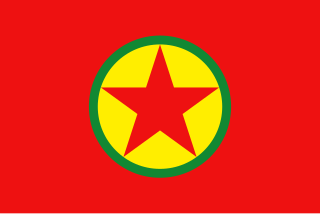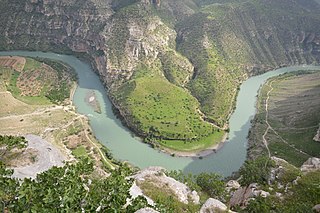| Province | District | Village | Info |
|---|
| Batman | Gercüş | Cevizli | Unpopulated until 2016 [9] |
| Kozluk | Kolludere | Unpopulated until 2008 [9] |
| Hasankeyf | Palamut | Unpopulated until 2013 [9] |
| Bingöl | Yedisu | Akımlı | Unpopulated until 2014 [9] |
| Yayladere | Alınyazı | Unpopulated until 2011 [9] |
| Kiğı | Baklalı | Unpopulated until 2011 [9] |
| Yayladere | Bilekkaya | Unpopulated until 2008 [9] |
| Yayladere | Boğazköy | Unpopulated until 2014 [9] |
| Adaklı | Cevizli | Unpopulated until 2009 [9] |
| Yayladere | Çatalkaya | Unpopulated until 2008 [9] |
| Yayladere | Gökçedal | Unpopulated until 2011 [9] |
| Kiğı | İlbeyi | Unpopulated until 2011 [9] |
| Yayladere | Kırköy | Unpopulated until 2014 [9] |
| Kiğı | Kutluca | Unpopulated until 2010 [9] |
| Yayladere | Yavuztaş | Unpopulated until 2009 [9] |
| Kiğı | Yukarıserinyer | Unpopulated until 2012 [9] |
| Bitlis | Tatvan | Anadere | Unpopulated until 2010 [9] |
| Bitlis | Aşağıbalcılar | Unpopulated until 2013 [9] |
| Tatvan | Çavuşlar | Unpopulated until 2010 [9] |
| Bitlis | Ilıcak | Unpopulated until 2008 [9] |
| Bitlis | Kayalıbağ | Unpopulated until 2008 [9] |
| Bitlis | Kınalı | Unpopulated until 2010 [9] |
| Tatvan | Odabaşı | Unpopulated until 2012 [9] |
| Bitlis | Oğulcak | Unpopulated until 2022 [9] |
| Bitlis | Sarpkaya | Unpopulated until 2008 [9] |
| Bitlis | Uçankuş | Unpopulated until 2008 [9] |
| Bitlis | Üçevler | Unpopulated until 2008 [9] |
| Diyarbakır | Ergani | Devletkuşu | Unpopulated until 2009 [9] |
| Çınar | Gürses | Unpopulated until 2010 [9] |
| Ergani | Kavurmaküpü | Unpopulated until 2009 [9] |
| Dicle | Kırkpınar | Unpopulated until 2010 [9] |
| Dicle | Kurşunlu | Unpopulated until 2013 [9] |
| Bismil | Kurudeğirmen | Unpopulated until 2008 [9] |
| Dicle | Taşağıl | Unpopulated until 2013 [9] |
| Lice | Yolçatı | Unpopulated until 2009 [9] |
| Erzurum | Hınıs | Ilıcaköy | Unpopulated until 2010 [9] |
| Hakkari | Hakkari | Aksu | Unpopulated until 2015 [9] |
| Çukurca | Cevizli | Unpopulated until 2011 [9] |
| Çukurca | Kazan | Unpopulated until 2014 [9] |
| Yüksekova | Sürekli | Unpopulated until 2013 [9] |
| Hakkari | Yoncalı | Unpopulated until 2013 [9] |
| Iğdır | Aralık | Tarlabaşı | Unpopulated until 2022 [9] |
| Mardin | Dargeçit | Akçaköy | Unpopulated until 2010 [9] |
| Derik | Bağarası | Unpopulated until 2023 [9] |
| Dargeçit | Çavuşlu | Unpopulated until 2013 [9] |
| Dargeçit | Korucu | Unpopulated until 2013 [9] |
| Dargeçit | Kumdere | Unpopulated until 2013 [9] |
| Dargeçit | Kuşluca | Unpopulated until 2013 [9] |
| Midyat | Oyuklu | Unpopulated until 2012 [9] |
| Nusaybin | Pazarköy | Unpopulated until 2016 [9] |
| Nusaybin | Tekağaç | Unpopulated until 2022 [9] |
| Ömerli | Topağaç | Unpopulated until 2008 [9] |
| Dargeçit | Ulaş | Unpopulated until 2013 [9] |
| Midyat | Yenice | Unpopulated until 2008 [9] |
| Siirt | Eruh | Akmeşe | Unpopulated until 2014 [9] |
| Siirt | Bağlıca | Unpopulated until 2011 [9] |
| Eruh | Bingöl | Unpopulated until 2010 [9] |
| Şirvan | Cevizdalı | Unpopulated until 2008 [9] |
| Eruh | Kovanağzı | Unpopulated until 2023 [9] |
| Siirt | Yazlıca | Unpopulated until 2009 [9] |
| Eruh | Yanılmaz | Unpopulated until 2009 [9] |
| Şırnak | Güçlükonak | Ağaçyurdu | Unpopulated until 2014 [9] |
| Silopi | Aksu (Assyrian) | Unpopulated until 2019 [9] |
| Şırnak | Atbaşı | Unpopulated until 2011 [9] |
| Şırnak | Bağpınar | Unpopulated until 2018 [9] |
| Güçlükonak | Demirboğaz | Unpopulated until 2011 [9] |
| Beytüşşebap | Doğanyol | Unpopulated until 2016 [9] |
| Şırnak | Kırkkuyu | Unpopulated until 2011 [9] |
| Şırnak | Körüklükaya | Unpopulated until 2013 [9] |
| Silopi | Kösreli (Assyrian) | Unpopulated until 2015 [9] |
| İdil | Mağaraköy | Unpopulated until 2011 [9] |
| Güçlükonak | Taşkonak | Unpopulated until 2014 [9] |
| Beytüşşebap | Toptepe | Unpopulated until 2013 [9] |
| Silopi | Selçik | Unpopulated until 2010 [9] |
| Silopi | Yolağzı | Unpopulated until 2019 [9] |
| Şırnak | Cevizdüzü | Unpopulated until 2023 [9] |
| Tunceli | Ovacık | Ağaçpınar | Unpopulated until 2011 [9] |
| Pülümür | Ağaşenliği | Unpopulated until 2008 [9] |
| Pülümür | Akdik | Unpopulated until 2009 [9] |
| Ovacık | Aktaş | Unpopulated until 2014 [9] |
| Pülümür | Altınhüseyin | Unpopulated until 2009 [9] |
| Ovacık | Aşlıca | Unpopulated until 2009 [9] |
| Tunceli | Babaocağı | Unpopulated until 2008 [9] |
| Ovacık | Bilekli | Unpopulated until 2015 [9] |
| Ovacık | Bilgeç | Unpopulated until 2018 [9] |
| Hozat | Boydaş | Unpopulated until 2018 [9] |
| Ovacık | Buzlutepe | Unpopulated until 2010 [9] |
| Pülümür | Çağlayan | Unpopulated until 2008 [9] |
| Tunceli | Çalkıran | Unpopulated until 2008 [9] |
| Ovacık | Çambulak | Unpopulated until 2010 [9] |
| Ovacık | Çatköy | Unpopulated until 2013 [9] |
| Ovacık | Çayüstü | Unpopulated until 2012 [9] |
| Tunceli | Dikenli | Unpopulated until 2013 [9] |
| Tunceli | Dilek | Unpopulated until 2008 [9] |
| Nazımiye | Doğantaş | Unpopulated until 2010 [9] |
| Ovacık | Doludibek | Unpopulated until 2013 [9] |
| Pülümür | Efeağılı | Unpopulated until 2008 [9] |
| Ovacık | Eğimli | Unpopulated until 2012 [9] |
| Ovacık | Eğrikavak | Unpopulated until 2010 [9] |
| Tunceli | Eğriyamaç | Unpopulated until 2008 [9] |
| Ovacık | Elgazi | Unpopulated until 2013 [9] |
| Ovacık | Eskigedik | Unpopulated until 2010 [9] |
| Ovacık | Garipuşağı | Unpopulated until 2014 [9] |
| Tunceli | Gözen | Unpopulated until 2008 [9] |
| Ovacık | Halitpınar | Unpopulated until 2015 [9] |
| Ovacık | Işıkvuran | Unpopulated until 2010 [9] |
| Ovacık | Karataş | Unpopulated until 2011 [9] |
| Pülümür | Kaymaztepe | Unpopulated until 2010 [9] |
| Hozat | Kızılmescit | Unpopulated until 2013 [9] |
| Ovacık | Koruköy | Unpopulated until 2018 [9] |
| Hozat | Kozluca | Unpopulated until 2014 [9] |
| Hozat | Kurukaymak | Unpopulated until 2022 [9] |
| Ovacık | Kuşluca | Unpopulated until 2010 [9] |
| Ovacık | Otlubahçe | Unpopulated until 2013 [9] |
| Tunceli | Pınar | Unpopulated until 2008 [9] |
| Ovacık | Şahverdi | Unpopulated until 2012 [9] |
| Pülümür | Şampaşakaraderbendi | Unpopulated until 2009 [9] |
| Ovacık | Tepsili | Unpopulated until 2011 [9] |
| Ovacık | Yakatarla | Unpopulated until 2011 [9] |
| Ovacık | Yalmanlar | Unpopulated until 2013 [9] |
| Ovacık | Yarımkaya | Unpopulated until 2010 [9] |
| Ovacık | Yoğunçam | Unpopulated until 2014 [9] |
| Hozat | Yüceldi | Unpopulated until 2010 [9] |
| Van | Gürpınar | Bükeç | Unpopulated until 2009 [9] |










